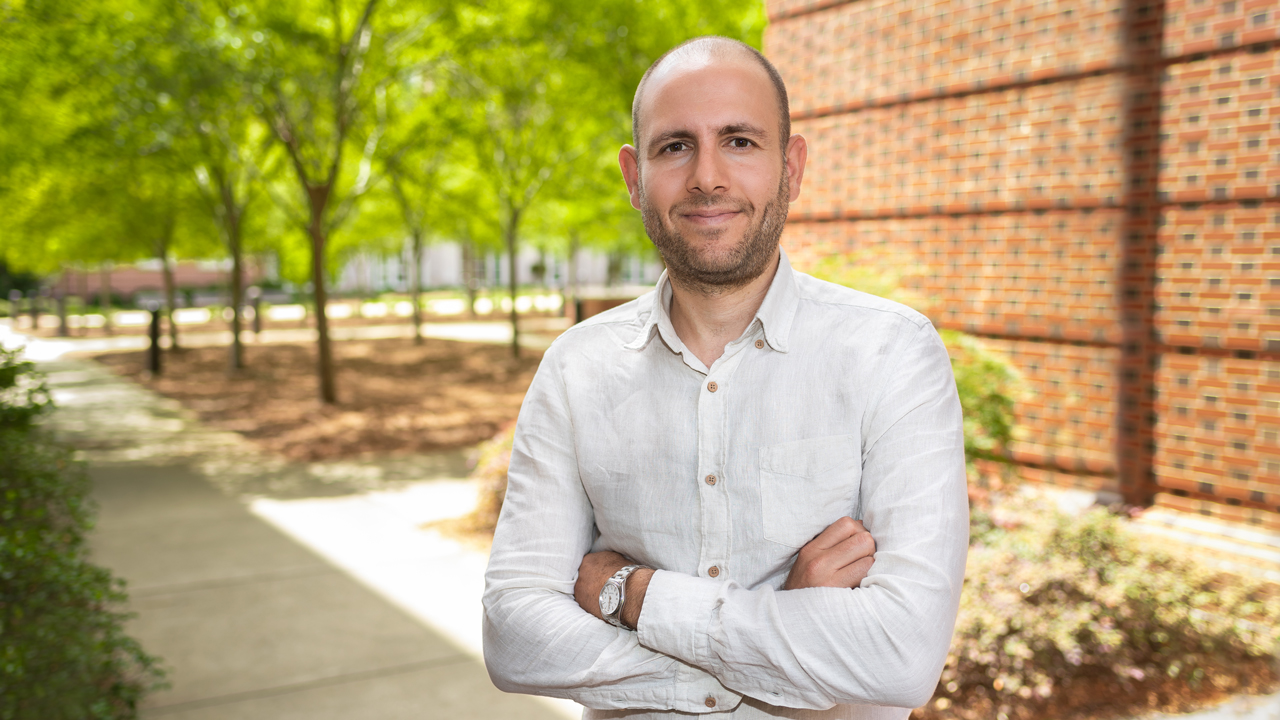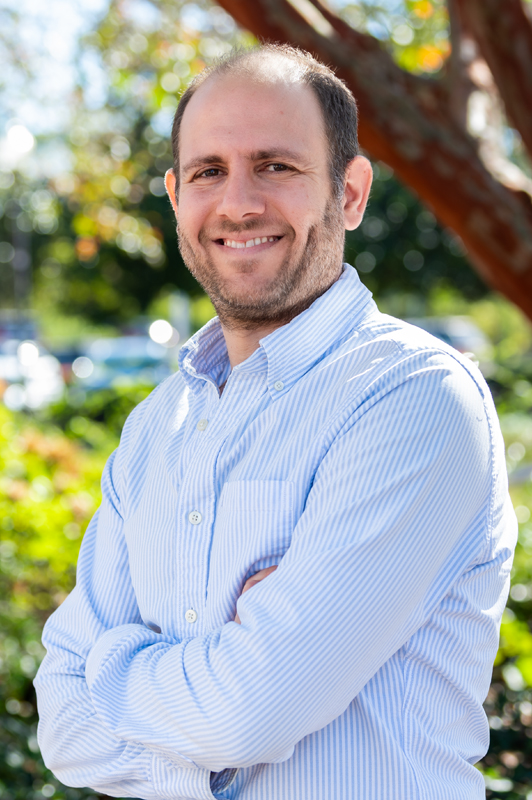CHEN professor earns $1.87M NIH grant to expand cellular process research
Published: Aug 15, 2022 12:08 PM
By Cassie Montgomery
At the intersection of biology and engineering, Panagiotis Mistriotis, assistant professor in the Auburn University Department of Chemical Engineering, is making a name for himself.
The National Institute of General Medical Sciences (NIGMS), a branch of the National Institutes of Health, recently awarded his laboratory a $1.87 million Maximizing Investigators’ Research Award (MIRA) to allow Mistriotis and his research group to further examine fundamental cellular processes to develop novel therapeutic interventions against the initiation and progression of pathophysiological phenomena, including cardiovascular disease, aging and cancer.
“Over the next five years, we will develop new bioengineering tools to study how pressure forces affect cell movement and survival,” Mistriotis said.
This is the second MIRA grant awarded to a chemical engineering faculty member in the last two years. Assistant professor Robert Pantazes earned a $1.75 million MIRA grant in 2020.
“I am very proud of Dr. Mistriotis for receiving this prestigious and highly competitive award,” said Mario Eden, the Joe T. and Billie Carole McMillan Professor and chemical engineering department chair. “It is a testament to his tremendous talent and future potential for significant contributions in the biomedical/tissue engineering field. Using chemical engineering principles to provide solutions to medical/health related problems is the next frontier for our discipline and I am excited to now have two junior faculty members recognized with this award.”
The NIGMS MIRA award is designed to provide long-term funding, allowing investigators greater stability and flexibility, with the goal of enhancing scientific productivity and the chances for important research breakthroughs.
“The funds of the NIGMS MIRA provide a stable research environment that enables early-stage investigators like me to pursue ambitious and high-impact projects,” Mistriotis said. “This generous early-career grant will jumpstart my research career and allow me to make significant scientific discoveries in the field of mechanobiology.”
As a field of study, mechanobiology is concerned with the mechanisms by which cells sense and respond to mechanical signals. Mistriotis noted that cells in the human body are constantly subjected to these signals, but researchers aim to learn more about how these signals impact cell behavior.
“The widely held view is that cells can sense and respond to these cues but our understanding of the underlying mechanisms remains very limited,” he said. “Our lab explores how physical forces convert into biochemical signals to influence cell behavior.”
Mistriotis was also recently awarded a $231,000 Career Development grant from the American Heart Association (AHA), which aims to support researchers in the cardiovascular field.
“This three-year award will allow us to investigate how normotensive and hypertensive vascular cells sense and respond to compressive forces in physiologically relevant environments,” Mistriotis said.
“The AHA Career Development Award, which supports highly promising healthcare and academic professionals in the cardiovascular field, has given me a much-needed boost of confidence and provided the research support needed to generate preliminary results that will lay the foundation for future grant submissions,” he added.
Media Contact: , cmontgomery@auburn.edu, 334.844.3668
Assistant chemical engineering professor Panagiotis Mistriotis


